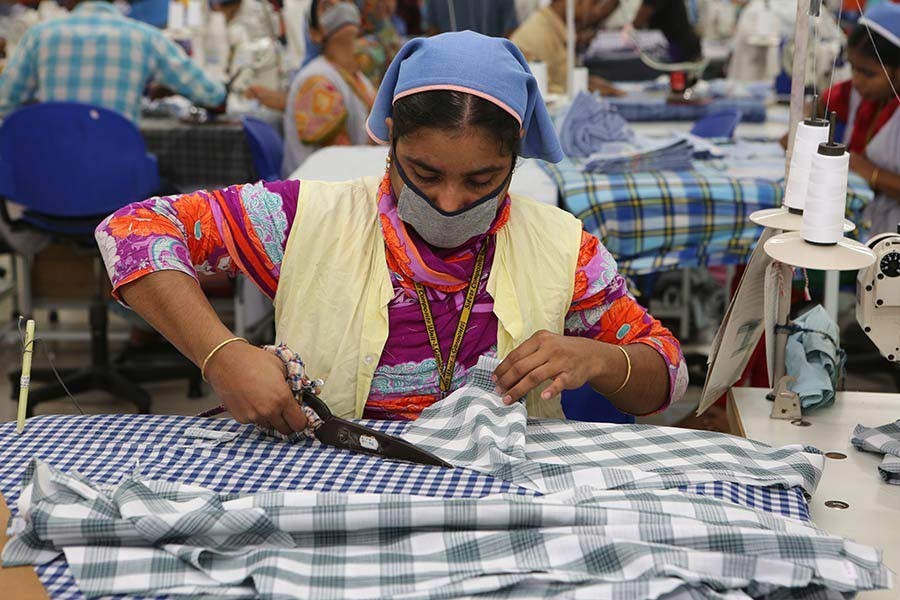Local ready-made garment (RMG) industry cannot take the advantages of globally growing virtual fashion market - in absence of required policy support and such digital platform in the country, industry people said.
Sourcing strategy is changing rapidly due to technological development and the Covid pandemic, while physical or traditional business strategy might not exist in future. Bangladesh would also lag behind its competitors and might lose global market share, if it fails to act accordingly in this regard, they noted.
They opined that the government needs to align its policies with the automation and technological development that are taking place in the industry - to cope up with the changed sourcing matrix to tap the business potentials in the virtual marketplace.
Bangladesh Garment Manufacturers and Exporters Association (BGMEA) President Faruque Hassan in the recent International Investment Summit said virtual marketplace is one of the post-Covid changes, which are taking place in the global fashion market, and it has huge potentials to grow.
"The share of online fashion sales is expected to remain high amid the pandemic," he added.
According to the BGMEA data, the share of fashion sales from online channels in USA grew to 37 per cent in 2020, which was 22 per cent during the pre-pandemic year (2019).
In Europe, the share of online fashion sales increased to 26 per cent in 2020, which was 16 per cent in 2019.
"Despite being the second largest apparel exporters in the world, Bangladesh is not benefiting from the growing virtual fashion market due to lack of time-befitting policies," the BGMEA president told the summit.
When asked, he said virtual market place could be a big source, through which local RMG industry can grow further.
But the government would have to work on several issues, including bringing required changes to the foreign exchange policy, export and import policies and tax policy for entering into the new arena of virtual business, he explained.
Responding to a question, Mr Hassan said the BGMEA and two other organisations are currently undertaking a study to thoroughly assess potentials and readiness of the industry to take advantages of the virtual marketplace.
The study would also explore the policy aspects - as to what kind of supports would the industry need, and where and to what extent changes would be required.
The share of virtual market would continue to grow in the coming days, and establishing a virtual marketplace is important for Bangladeshi RMG sector to remain competitive in the global market, the BGMEA chief added.
Exporters said they are still doing business in line with their capacity, which are, however, not sustainable enough.
A shift in the sourcing matrix would take place in the next couple of years, and if the industry fails to cope with the changing trend of automation, RMG business might gradually be shifted to other competitors, they noted.
Last year, the then BGMEA president Dr Rubana Huq, among others, proposed the government to develop a virtual market platform, mainly to dispose of the RMG products worth billion dollars - cancelled by global buyers due to the Covid-19 pandemic.


